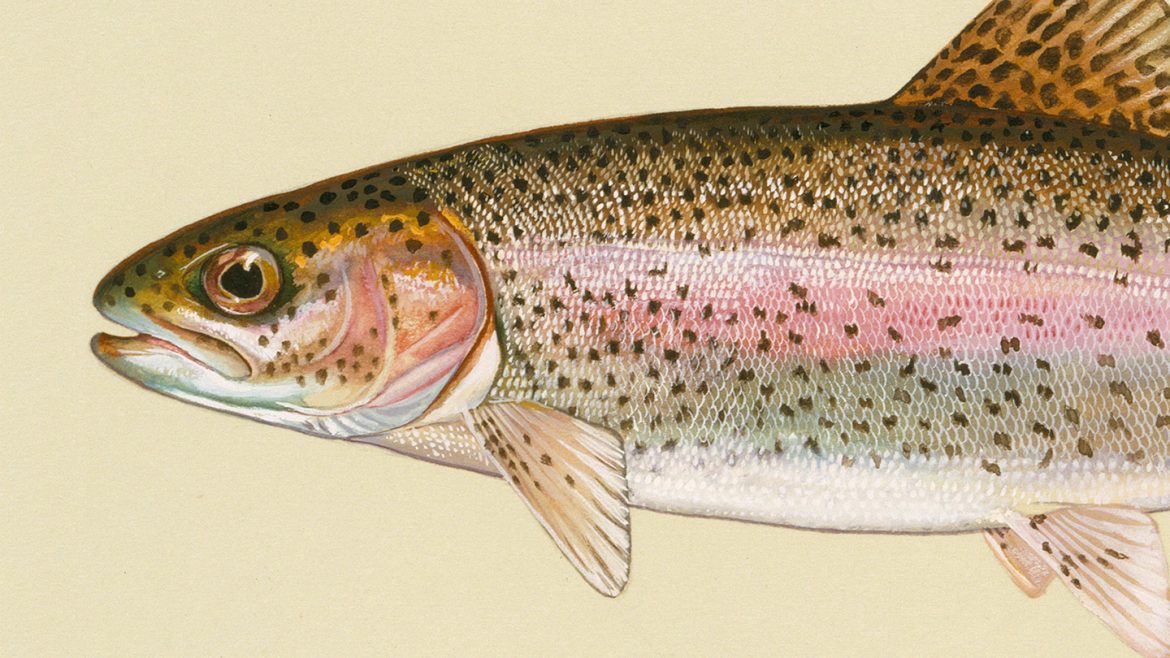Some fish have bacteria on the brain.
Wild and lab-grown members of the salmon family including European rainbow trout, Chinook salmon and Gila trout harbor active microbial communities inside their brains, researchers report September 18 in Science Advances. Lab-reared rainbow trout (Oncorhynchus mykiss) brains may source more than half of bacteria from their blood and guts, suggesting that microbes from other parts of the body traverse the blood-brain barrier to colonize the organ.
Animal brains are thought to be free of bacteria, with any invasion typically linked to disease (SN: 3/1/23). A growing body of work, for instance, shows that brain-infiltrating microbes may be linked with conditions such as Alzheimer’s disease in people. But the new finding hints that bacteria aren’t necessarily bad news for fish brains. For the most part, the animals seem healthy despite having microbes inside their skulls.
The brain bacteria might help fish sense microbial cues in the environment, says Irene Salinas, an evolutionary immunologist at the University of New Mexico in Albuquerque. That could help migratory fish navigate rivers.
Salinas and colleagues probed rainbow trout brain samples for bacteria, first removing the blood from the animals’ bodies to avoid contamination. Counts of genetic material from four brain regions showed that fish brains had similar levels of bacteria as the spleen, but a thousandth the levels of their guts. Wild rainbow trout, Atlantic salmon (Salmo salar), Chinook salmon (Oncorhynchus tshawytscha) and Gila trout (O. gilae) also have brain microbiomes, although with different communities than lab-grown trout and in varying amounts possibly sourced from different organs.
The team extracted and grew a total of 54 isolates from lab-reared fish, showing that the microbiome is active in the brain. Genetic analyses also revealed signs that bacteria adapt to living in the brain, including having structures that may help microbes cross the blood-brain barrier. Whether the microbes hunker down over the long haul or the populations are constantly replenished from other organs is still unclear.
Brain bacteria may not always be beneficial for fish, however. Adult Chinook salmon brains can have buildup of amyloid-beta, the protein involved in Alzheimer’s, and tend to have more bacteria than juveniles do as the adults approach death. Similar to how the gut microbes go out of whack, it’s possible that sometimes “microbiota in the brain may become dysregulated” and cause problems for the animals, Salinas says.
Still, the findings open up questions about whether bacteria in the brain is a trait unique to fishes, or whether other vertebrates have brains chock-full of bacteria, too. And when it comes to fish, “there’s a lot of diversity of different fishes on the planet,” Salinas says. Perhaps deep-sea fish or sharks have unique bacteria in their brains that help them adapt to their environments.
Source link
